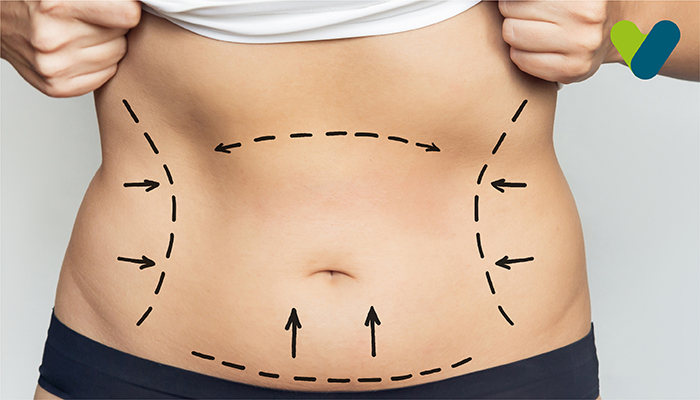With changing lifestyles, there are many factors which are affecting our health. Where obesity is becoming common with every passing day, the threats that it causes to a person are scary. While a person you are facing obesity issues has to undergo social pressure, they are also inclined to diabetes, heart problems, and many other fitness issues. Not only social and physical health are under threat, but mental health is also affected given to the taunts that a person hears from their peers, family, and relatives. Sometimes the situations get so severe that people have to go for weight loss surgery. Let us get a better idea of weight loss surgery.
When to get weight loss surgery?
Weight loss surgeries or as collectively known as Bariatric surgery, are nothing but changes made to the stomach or intestine to help people get rid of some of the excess body weight. Though the best method is to undergo a healthy diet plan or to start exercising, there are certain circumstances where Bariatric surgery is recommended. These conditions can be of the following type,- When the Body Mass Index, or as commonly referred to as BMI, is more than 40, which means that the person is extremely obese.
- When the BMI is around 35 coupled with lifestyle diseases like thyroid, diabetes, and others.
- When no exercise and diet plans seem to work, the doctor recommends getting rid of some of your body fat.
Types of weight loss surgery
Bariatric surgery, though is an option when a person is having some serious weight issues, still has a certain level of risk involved. There are broadly four types of Bariatric surgeries available, and each has its benefits and risks. Thus, before opting for the type of surgery, one needs to make sure that they have compared all of them and are choosing the one that best suits their requirements.Gastric Bypass
Under this type, a smaller stomach and intestine are created, which helps in lesser nutrient absorption from the smaller meal. In gastric bypass surgery, the stomach is subjected to a cut making a small pouch which makes the rest of the stomach act as a bypass. At the same time, this newly created stomach is connected to a smaller intestine. It is a complex surgery.
Sleeve Gastrectomy
Under this type, as much as 80% of the stomach is removed. The effects are much similar to Gastric Bypass surgery. Though the effects are quite similar, the procedure is less complex but irreversible.
Adjustable Gastric Band
This is the more friendly method, though the success is not immediate or might not be to the level of the other surgical options. In this case, a band type of a system is added to the stomach, which reduces the size of the stomach, though this is reversible, unlike the other two procedures, and has lesser risk factors.
Biliopancreatic Diversion with Duodenal Switch
This is the most beneficial type of surgery in both the size of the stomach and small intestine. This is the most beneficial and successful type, though as the benefits increase, so do the risk factors.
Effectiveness
The effectiveness of bariatric surgery depends on various factors like age, weight, type of surgery, health conditions, diet plans, motivation to keep themselves fit, and other psychological factors. At the same time, these factors play a major role in deciding the success rate of the surgery. The combined success rate as per reports can be summed up in the following points.- Though the data might vary from clinic to clinic, weight loss surgery can help in reducing weight up to 50% given that the diet plan and proper care are taken.
- After the surgery, the reports have found that the patient continues to lose weight at a great speed as much as 30% to 50% in the starting months, which can reach up to 70% in the longer duration.
- Even after years, as per the reports, patients can maintain as much as 50% to 60% of the lost weight for 14-15 years after surgery.
- High Blood Pressure
- Diabetes
- Shortness of Breath and Asthma
- Stress Urinary Incontinence
- High Cholesterol
- Heart Disease
- Diabetes
- Sleep Apnea and Obesity Hypoventilation Syndrome
- Low Back Pain, Degenerative Disk and Joint Disease
- Heartburn
- High Cholesterol
Risk and Complications
Like any other medical surgery, bariatric surgery has some risks which the surgeon is supposed to inform about before the surgery takes place. These risks and complications can be subject to the type of surgery that a person opts for. While there are different risk factors involved with different people depending on their conditions, some of them are common to all. These common risk factors can be short-term as well as long-term.Short term
- Infection
- Anesthetic risks
- Certain food articles can cause trouble
- Acid reflux
- Weigh related issues can prevail
- Esophagus might dilate
- Stomach obstruction
- Ulcers
- Malnutrition
- Hernias
- Dumping syndrome
- Obstruction in bowel movement
- Low blood sugar
This piece of information will help a person with some knowledge regarding weight loss surgery, the types, when to go for one, and what are the success rate, as well as the risk factors that are involved. Generally, teenagers and children are not recommended to go with the surgery.
These types of surgery are for adults and are often considered the last resort for a certain situation. While the doctors first try to get rid of the problem with medicines and exercises, sometimes nothing works, and the person will have to undergo bariatric surgery. All that is required is proper information and correct decision-making capability.


